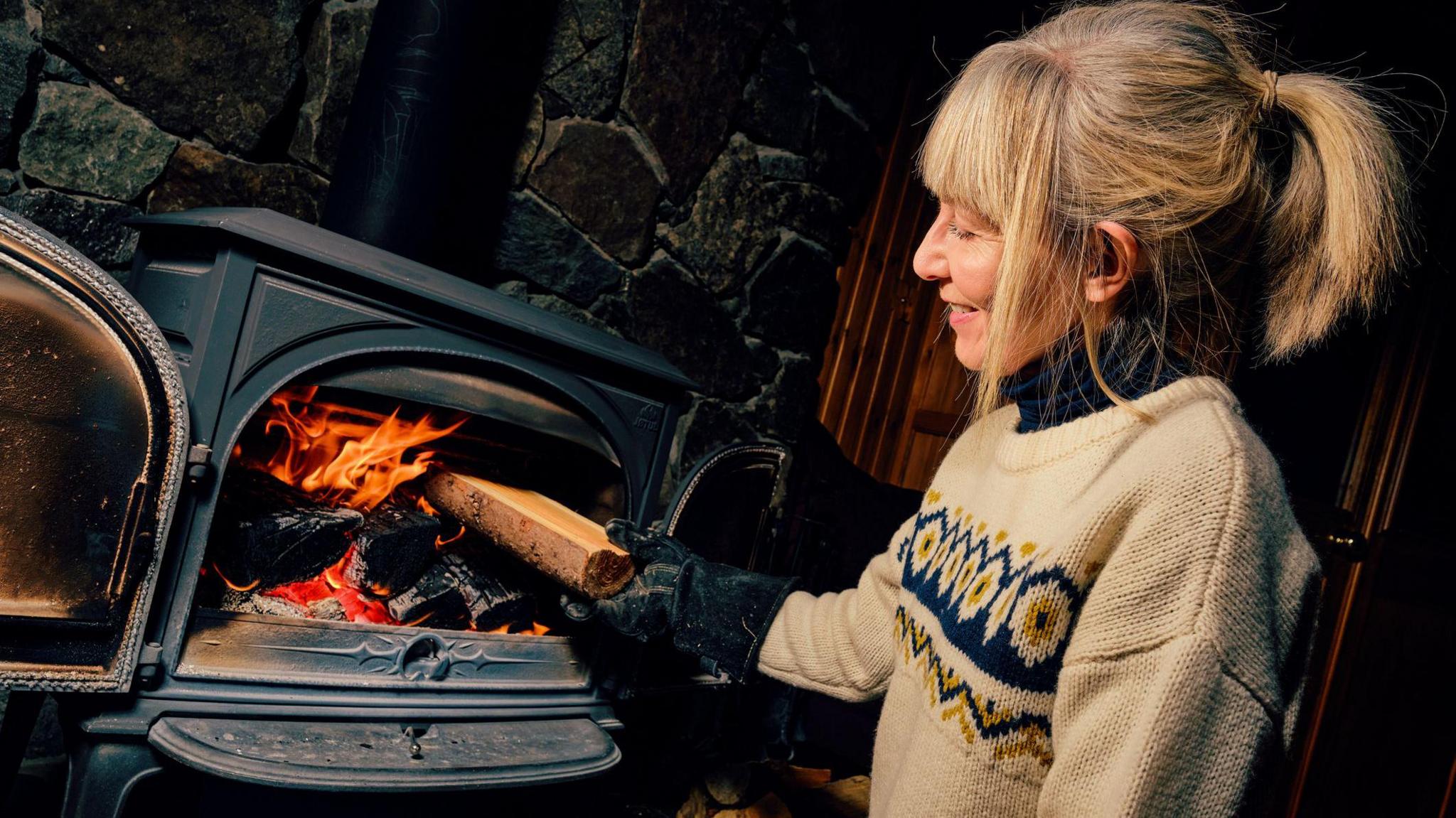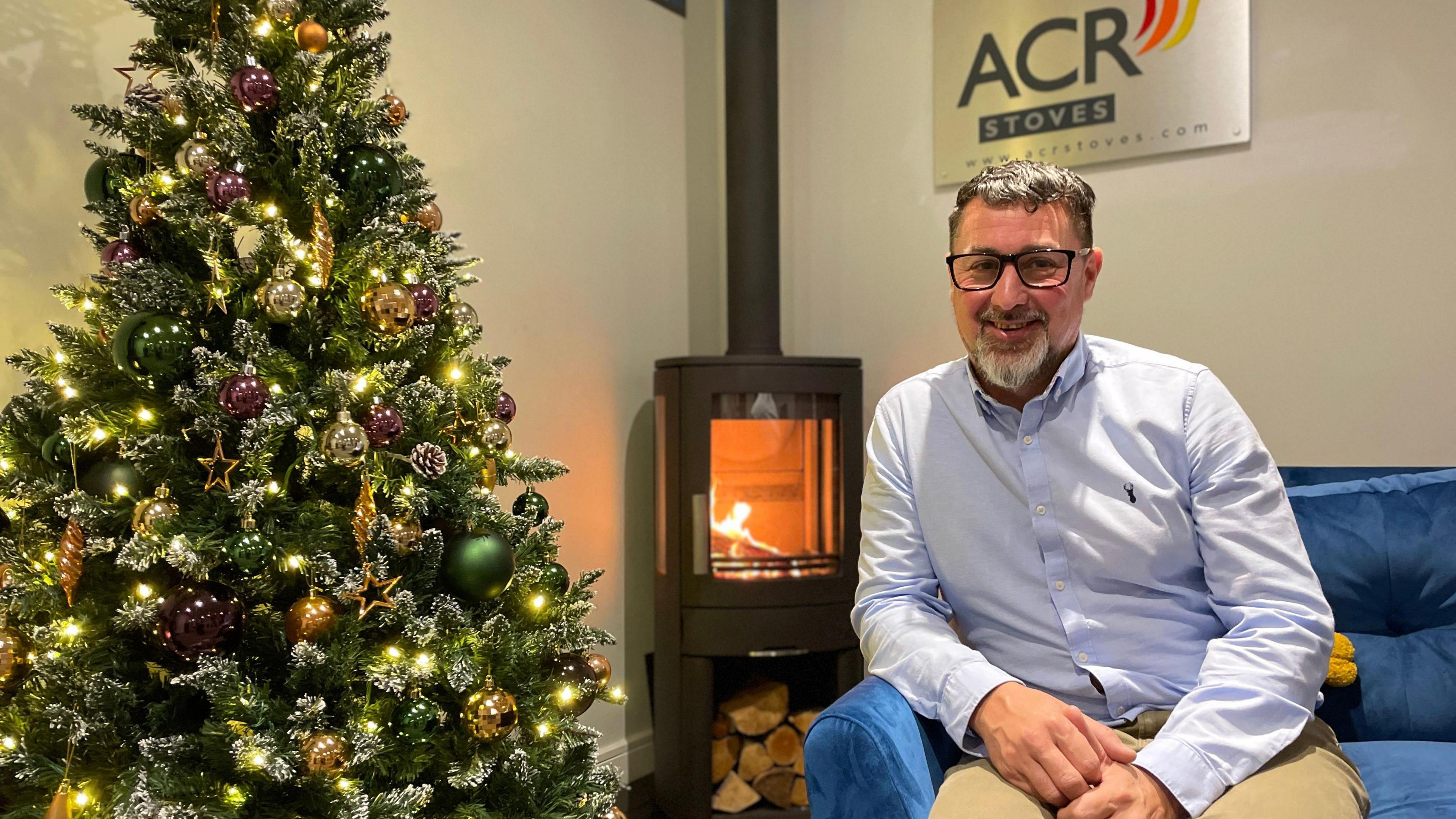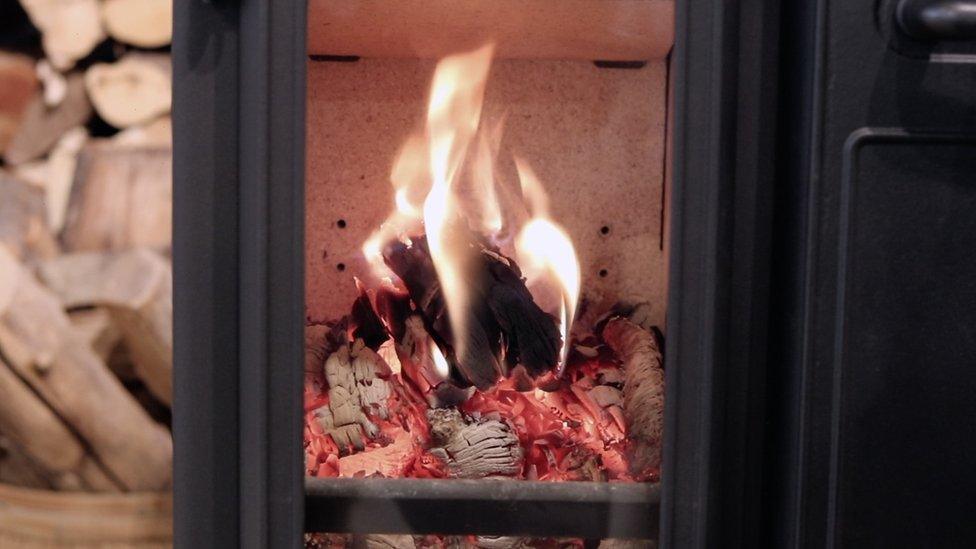Wood burners more polluting than traffic - study

A quarter of harmful particles in the air came from domestic fires, researchers claimed
- Published
Burning wood at home produces more pollution than road traffic, according to new research.
The findings, from the University of Birmingham, show a quarter of harmful particles in the air, known as PM2.5s, come from domestic fires while traffic is responsible for 22%.
Wood-burning stoves have risen in popularity in the UK with an estimated 1.9m homes now having one, according to the Stove Industry Alliance.
One campaigner from Birmingham said she was worried the effect they were having on children and others with health issues.
"It's particularly worrying that those with very little agency, their health is being damaged when they're very young, even before they're born," Kirsten de Vos, from the Mums for Lungs group, said
The tiny particles of matter, PM2.5s, have been linked to conditions such as heart disease and strokes.

Prof Zongbo Shi hoped his findings would lead to changes in behaviour among residents in Birmingham
Scientists analysed PM2.5 samples collected in 2021 and 2022 at two sites in Birmingham.
They found wood-burning concentrations seven times higher than those observed between 2008 and 2010.
They also discovered that the impact of wood burning was particularly pronounced during winter months, contributing to half of PM2.5 concentrations, a seasonal spike put down to people heating their homes more due to the colder weather.
The lead investigator of the study, Prof Zongbo Shi, admitted he was surprised by his own findings.
He said it "demonstrates the huge impact" burning wood at home has.
Prof Shi added he hoped it would make people consider "if there is a real need to use their stoves".
Researchers at the university estimated that, annually in the West Midlands, up to 2,300 premature deaths arose from long-term exposure to PM2.5s.

Kirsten de Vos, from the campaign group Mums for Lungs, said residents were not aware of the negatives effects of wood-burning stoves
Campaign group Mums for Lungs has called for wood burners to be phased out when alternative heating methods exist.
Ms de Vos, from the group, said people were not aware of the harmful effects on their health.
"It's like breathing fumes from a diesel truck, it's as bad as that," the mother, from Moseley, Birmingham, said.
The government has ruled out a ban on wood burning.
Last year, as part of their 25-year environmental plan, ministers brought in legislation cutting the amount of PM2.5s which wood burners were allowed to emit.
It applies to homes in smoke control areas which cover most of England's towns and cities.
Anyone found to be breaking the new measures can be issued with an on the spot fine - although Mums for Lungs claimed enforcement by local authorities was almost non-existent.

Jason Searle, of ACR Stoves in Birmingham, said modern wood burners had come a long way in the last 10 years
In Tyseley, Birmingham, ACR Stoves produce 10,000 wood burners for the UK market every year.
Managing director Jason Searle said the modern eco stove was more efficient and "produced 90% fewer emissions than a traditional open fire and 80% fewer emissions than an old stove".
But he said the stove was "only as good as the fuel you put on it", with the wood needing to be below 20% moisture content.
He added they needed to be serviced annually and chimneys cleaned.
But even well maintained eco stoves emit pollution, Mr Searle admitted.
Prof Shi said, based on his findings, people should think twice before installing them.
His next research project involves studying the pollution produced inside the home by wood burners.
His team have installed sensors in a dozen properties in the city which have stoves and will start analysing the data over the next year.
- Published24 January 2024

- Published28 February 2023

- Published1 February 2023
